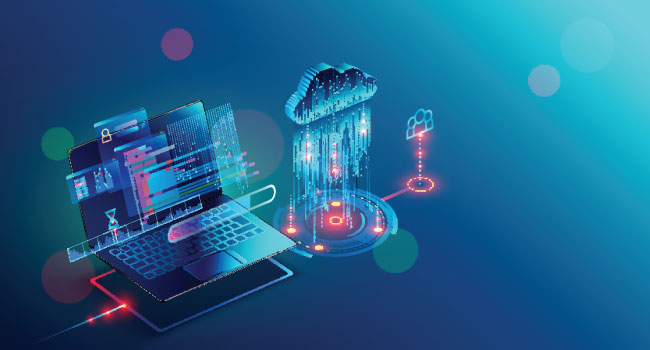
Cloud Security Made Simple: A Beginner's Guide for Business Owners
- By Jospeh Carson
- Aug 14, 2023
Most businesses are familiar with the benefits of the cloud, especially when it comes to economies of scale, remote teams, and cost efficiency. However, companies just approaching or have recently completed the migration process often need to pay more attention to one of its most essential aspects - security.
To ensure that your business's data and digital assets are safe, specific strategies should be implemented to minimize the risk of malicious attacks or data breaches.
Keep Your Systems Up to Date
Cyber threats are always on the rise, and systems are becoming more vulnerable daily. Fortunately, however, software vendors are constantly releasing security fixes and patches to address these weaknesses.
The catch is that these software fixes will only work if you deploy them in your system, and in a timely manner. Failing to keep your systems updated leaves them exposed to numerous known vulnerabilities. Regularly updating your systems ensures that the latest security measures are in place and reduces the risk of a breach.
Rely on Data Encryption
Data encryption is one of the most valuable approaches to securing information in a cloud setting. Encryption offers an additional layer of protection that blocks data even when a hacker gains access to it. Without the correct decryption key, they cannot do anything with the data, making it useless in their hands.
It is recommended that businesses use end-to-end encryption for data both in transit and at rest. This means that data is encrypted from the point of origin to its destination, and all information stored in the cloud is kept safe. If you feel uncomfortable managing encryption on your own, many cloud vendors will offer solutions specifically for this purpose.
Audit Your Cloud Providers
When choosing a cloud provider, businesses should take the time to verify that the provider meets all their organization's unique compliance requirements. While most reputable providers offer a decent baseline, additional steps will be necessary to confirm that the provider understands and accepts their accountability regarding cloud security.
One way to do this is by conducting third-party audits that measure the provider's ability to secure their cloud platform. This can be done when vetting a new partnership and periodically after the fact. Setting service level agreements at the outset also gives you peace of mind that your cloud provider is taking the necessary steps to protect your data.
Implement Strong Password with Passphrases
Strong passwords are critical to cloud security. Strong user credentials provide the first line of defense against cyber attacks by ensuring that only authorized individuals access your systems. However, weak passwords, such as "password," "1234," or "admin," are easy to guess and leave devices vulnerable to network breaches. Start adopting passphrases instead of passwords which help ensure they are longer and easier to remember, reducing the risks of password reuse.
To improve password strength, businesses can adopt a multi-factor authentication system. This system requires an individual to provide a password and a second form of verification, such as a one-time pin, biometric verification, or SMS message to access systems.
While these solutions are imperfect, they require hackers to take multiple steps to gain access, significantly reducing the likelihood of a breach.
Monitor Activity and Logs
Keeping a close eye on your organization's cloud activity is essential to identify any suspicious activity or potential threats quickly. Most cloud platforms provide comprehensive log data that can help identify unauthorized access or data breaches.
You can quickly detect any abnormal patterns and take corrective action by monitoring activity logs. Keeping an audit log is also important for compliance, as it allows you to demonstrate that your organization is taking the necessary steps to protect its data.
Segregate Sensitive Data
Not all data is created equal, and some are more sensitive than others. Therefore, implementing segmentation by isolating areas of your cloud infrastructure storing sensitive data can minimize the scope of any security incidents.
Privileged Access Management (PAM) solutions are the industry standard for data segmentation. PAM solutions provide a Zero Trust security model that strictly limits access to certain areas of the cloud, keeping sensitive data safe from unauthorized access while allowing administrators granular control over access rights across the organization.
Hire a Dedicated Cloud Security Specialist
Cloud technology continuously evolves, and staying up to date with the latest security measures can be overwhelming. Hiring a dedicated cloud security specialist can help your organization avoid potential threats and implement the latest security measures.
In addition to staying on top of industry trends, a specialist can guide the IT professional in charge of cloud technology with practical training and guidelines to protect the company's data. A specialist can provide more specialized expertise and partner with cloud providers to help identify, assess and mitigate potential risks.
Keep Your Cloud Security Top Priority
The cloud provides organizations flexibility, scalability, and cost savings, but it doesn't always maximize security by default. To ensure the safety of your data in the cloud, you need to stay vigilant and prioritize security to minimize the risk of a breach.
By following the steps outlined above and staying up to date on industry best practices, you can ensure your cloud environment is always safe and compliant.